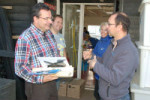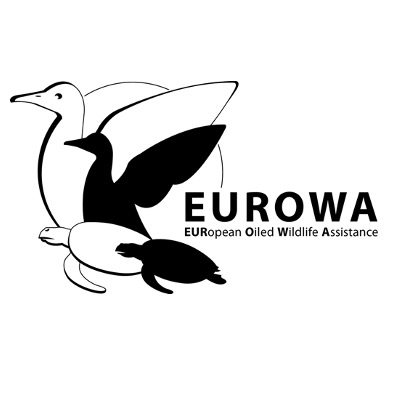Texel field exercise tests NL wildlife response strategy

In December 2015, a field exercise at ECOMARE, on the Wadden Sea island of Texel, tested local oiled wildlife response capability and ECOMARE’s ability to function as a stabilisation centre. Sea Alarm and Wildlife Rescue Centre Ostend organised the exercise as part of the Dutch national oiled wildlife training and exercise programme.
The national oiled wildlife response plan in the Netherlands, operated by Rijkswaterstaat (the National Maritime Authority) is built on the technical expertise provided by various bird rehabilitation centres in the coastal areas of the Netherlands. These centres cooperate under the umbrella organisation SON (Stichting Olievogelopvang Nederland – National Oiled Bird Rehabilitation Care Network).
SON members annually enhance and exercise their joint capacity to respond to oiled wildlife via a dedicated implementation programme funded by Rijkswaterstaat. Sea Alarm coordinates that programme and also supports the SON’s efforts to advance the network and its capabilities on the basis of internationally recognised best practices. Wildlife Rescue Centre Ostend assists Sea Alarm in the organisation and implementation of field exercises.
The Texel one-day field exercise tested the ability of the facilities at ECOMARE, one of the SON partners, to operate as a wildlife stabilisation centre in the immediate aftermath of an oil spill. Under the SON standard operating procedure the two rehabilitation centres nearest to an incident would be directed to transform into, and function as stabilisation centres.
This field exercise tested ECOMARE’s internal response plan and assessed how many animals the facility would be able to accommodate. In the case of a spill, once animals are stabilised, they would be transported to the temporary facility established by Rijkswaterstaat within 48 hours of the national response plan being activated.
ECOMARE invited all SON partners to participate in their exercise so that the procedures involved in reception, intake and stabilisation care could be practised jointly, creating another opportunity for working together. As part of the exercise scenario, several tens of birds (represented by wooden decoys or ‘dummies’) arrived at the door of the ECOMARE facility over the course of a few hours. ECOMARE’s staff directed the processing of these arrivals, ensuring that the animals would be transferred, after intake examination and triage, into the stabilisation area of the facility.
In the afternoon ECOMARE staff and all participants evaluated the exercise, and amongst many lessons learned, there were kudos for the ECOMARE staff for having developed such an effective plan, which now can be used by the other SON centres as an example to aid in developing theirs. As part of the ongoing national programme, a major facility field exercise, similar to the one held in 2013, is being organised for 2016. An update on this event will be provided in a future newsletter.

